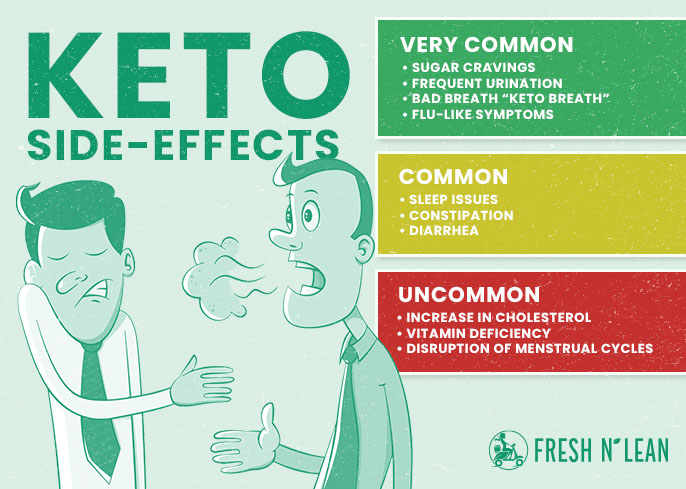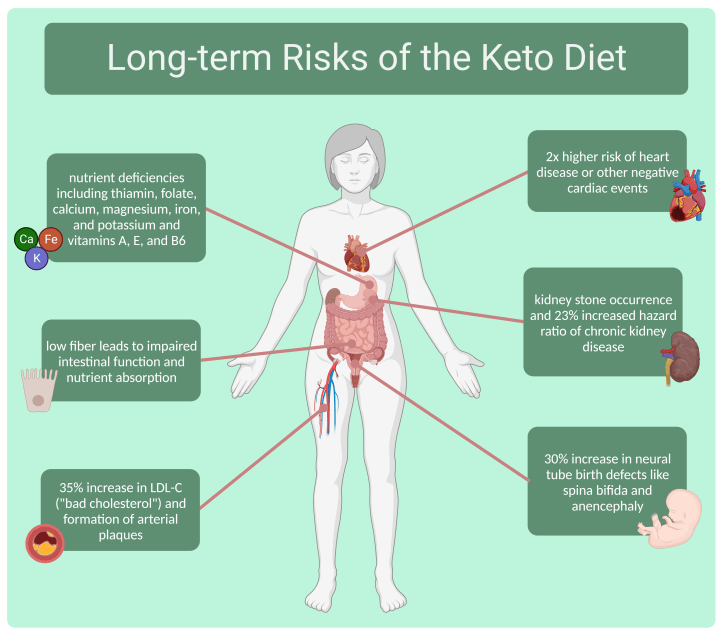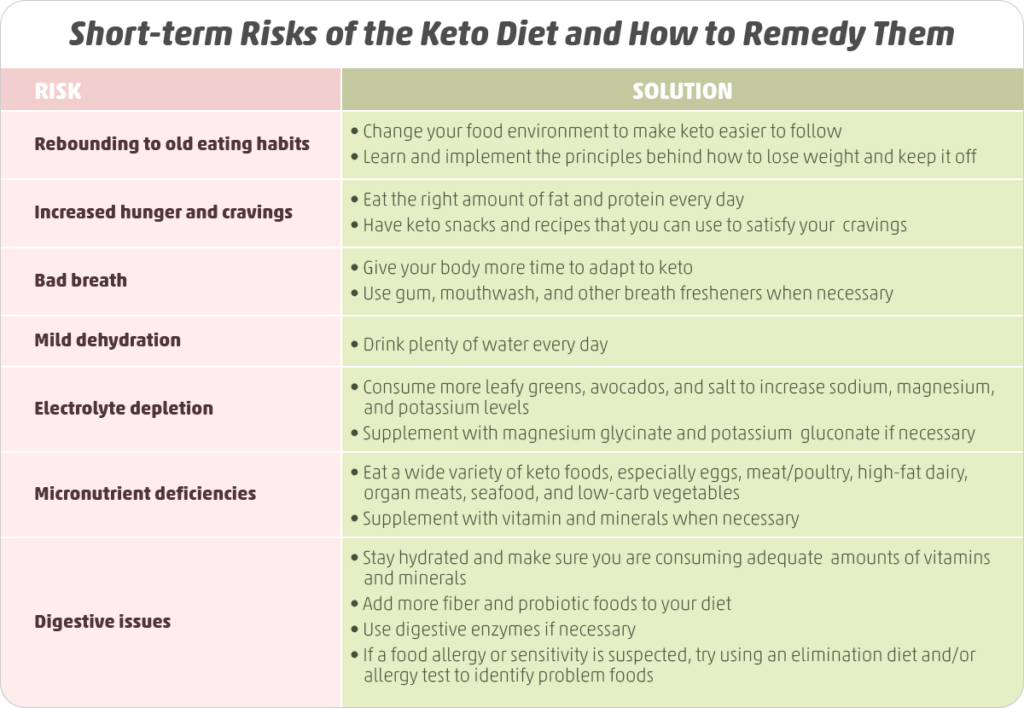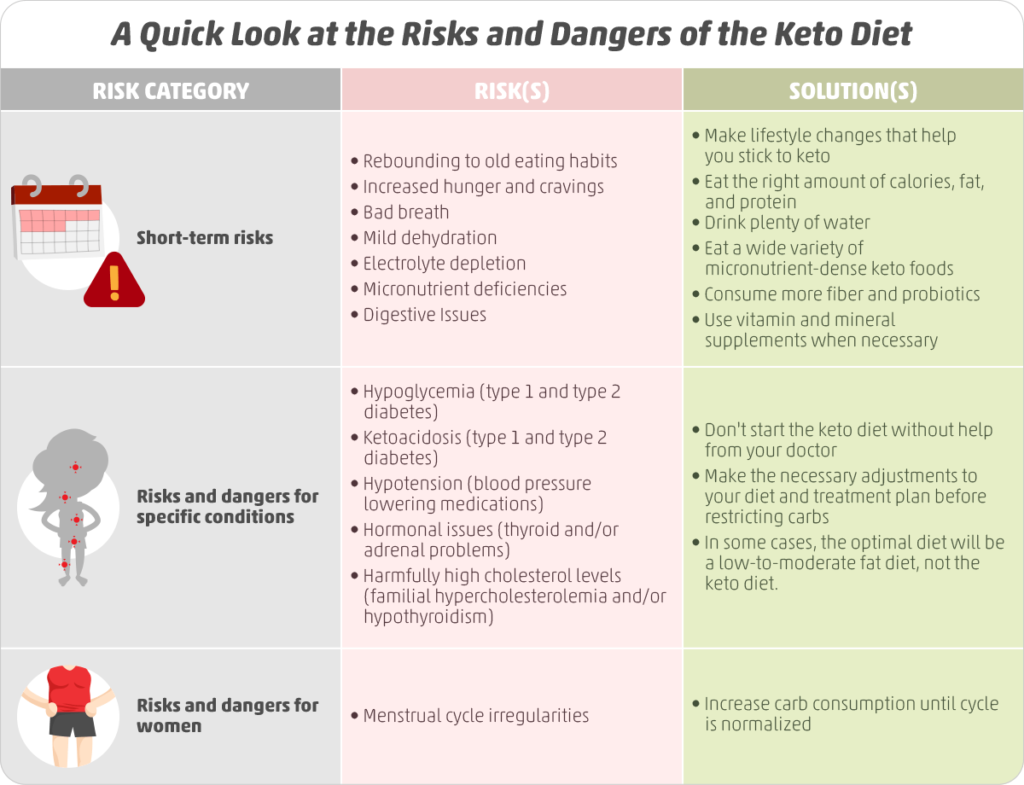Have you ever wondered why the keto diet is such a popular trend? Is it really effective for weight loss? Well, in this article, we’re going to dive into the world of the keto diet and discuss its potential negative effects on your health. But don’t worry, by the end of this article, you’ll also learn about how a custom keto diet plan may be able to help you achieve your weight loss goals while still prioritizing your health.
Now, let’s talk about the keto diet and why it may not be the best option for everyone. The keto diet is a low-carb, high-fat diet that aims to put your body into a state of ketosis, where it relies on fat for fuel instead of carbohydrates. While this may sound appealing for weight loss, it’s important to consider the potential negative impact it can have on your overall health. For instance, the restrictive nature of the keto diet may lead to nutrient deficiencies if not properly planned. Additionally, it can cause unpleasant side effects such as the “keto flu” and digestive issues. But don’t worry, there are ways to mitigate these negative effects and still enjoy the benefits of a custom keto diet plan. So, keep reading to find out more!
Understanding the Keto Diet
The keto (ketogenic) diet is a low-carbohydrate, high-fat eating plan that has gained popularity in recent years for its potential weight loss benefits. This diet involves significantly reducing your carbohydrate intake and replacing it with fat. The goal is to shift your body into a metabolic state called ketosis, where it primarily uses fat for energy instead of glucose from carbohydrates.
What is the keto diet?
The keto diet is a restrictive eating plan that drastically reduces your carbohydrate intake. Typically, it limits your daily carbohydrate consumption to around 20-50 grams per day, depending on the specific guidelines you choose to follow. This means you’ll need to avoid foods like bread, pasta, rice, and sugary snacks.
Instead, the focus of the keto diet is on consuming foods that are high in fat and moderate in protein. Healthy fat sources include avocados, nuts, seeds, and fatty fish. Protein can be obtained from sources like lean meats, poultry, and tofu.
How does the keto diet work?
The main principle behind the keto diet is to drastically reduce the intake of carbohydrates, which are the body’s primary source of energy. By depriving the body of carbohydrates, it is forced to rely on fat as an alternative fuel source. This metabolic shift triggers the production of molecules called ketones, which are produced when fat is broken down in the liver.
Ketones can be used by the body and the brain for energy, which is why the keto diet has been used as a therapeutic option for epilepsy. Additionally, ketones can also help suppress appetite, leading to potential weight loss benefits.
Benefits of the keto diet
The keto diet has been touted for its potential benefits beyond weight loss. Some studies suggest that the diet may help improve certain metabolic markers, such as blood sugar control and insulin sensitivity. It may also have positive effects on reducing triglyceride levels and increasing levels of HDL (good) cholesterol.
In addition, the keto diet has been associated with improvements in brain function and may be beneficial for people with neurodegenerative disorders like Alzheimer’s disease. However, it’s important to note that more research is needed to fully understand the long-term effects and benefits of the keto diet.
Potential Negative Effects of the Keto Diet
While the keto diet offers potential benefits, it’s important to be aware of the potential negative effects it may have on your health. Here are some considerations:
Nutritional deficiencies
By severely limiting your carbohydrate intake, you may inadvertently limit your intake of essential vitamins, minerals, and fiber-rich foods. Carbohydrates are a key source of nutrients like B vitamins, magnesium, and fiber, which play crucial roles in maintaining overall health. Without proper planning, a keto diet may lead to deficiencies in these nutrients, potentially causing adverse effects on your health.
Keto flu
When transitioning to a keto diet, some people may experience what is commonly referred to as the “keto flu.” This refers to a collection of temporary symptoms that may include fatigue, headaches, brain fog, irritability, and nausea. These symptoms are typically a result of the body adjusting to the lower carbohydrate intake and the transition to using fat for energy. While the keto flu is usually temporary, it can be unpleasant for some individuals.
Digestive issues
The drastic reduction of carbohydrates and increase in fat intake can sometimes lead to digestive issues for some individuals. Common complaints include constipation, diarrhea, and stomach discomfort. These issues can be attributed to the lack of fiber in the diet, as well as the altered gut microbiota that may occur with long-term adherence to the keto diet.

Impact on Heart Health
While the keto diet has been praised for its potential weight loss benefits, there are concerns regarding its impact on heart health. Here are some considerations:
Increased risk of heart disease
The keto diet is known for its high intake of saturated fats, which are typically found in animal products like meat and dairy. Consuming excessive amounts of saturated fat has long been associated with an increased risk of heart disease. It’s important to note that not all fats are created equal, and it’s essential to prioritize healthy fat sources like avocados and nuts in a keto diet.
Impact on cholesterol levels
The keto diet may have an impact on cholesterol levels in some individuals. While some studies suggest that the diet may increase levels of LDL (bad) cholesterol, it often leads to an increase in HDL (good) cholesterol as well. However, more research is needed to fully understand the long-term effects of a keto diet on cholesterol levels and cardiovascular health.
Potential for high saturated fat intake
Due to the high-fat nature of the keto diet, it’s important to choose fats wisely. A diet high in saturated fats can increase your risk of heart disease, so it’s crucial to prioritize unsaturated fats like those found in olive oil, avocados, and nuts. Balancing your fat intake and making healthier choices is essential for maintaining heart health while on a keto diet.
Potential Muscle Loss
While the keto diet may help with weight loss, there are concerns regarding its potential impact on muscle mass. Here are some considerations:
Lack of essential amino acids
Protein is important for building and maintaining muscle tissue. However, the keto diet often restricts protein intake, which may result in a lack of essential amino acids needed for muscle synthesis. To prevent muscle loss, it’s important to ensure you’re consuming enough protein while on a keto diet.
Higher risk of muscle breakdown
When carbohydrates are restricted, the body may turn to breaking down muscle tissue for energy. This can occur when glycogen stores are depleted, forcing the body to utilize protein as an alternative fuel source. To mitigate the risk of muscle breakdown, ensuring an adequate protein intake and possibly incorporating targeted resistance exercise is crucial.
Importance of protein consumption
To support muscle health on a keto diet, it’s important to prioritize protein consumption. Aim to include lean sources of protein like chicken, fish, tofu, and dairy products. Incorporating protein-rich foods into your meals and snacks can help ensure you’re meeting your protein needs and minimizing the risk of muscle loss.

Effect on Gut Health
The keto diet may have implications for gut health due to its restrictive nature. Here are some considerations:
Altered gut microbiota
The gut microbiota refers to the trillions of microorganisms that reside in your digestive system. This complex ecosystem plays a crucial role in overall health, including digestion, nutrient absorption, and immune function. The keto diet’s limited intake of fiber-rich foods such as fruits, vegetables, and whole grains may negatively impact the diversity and balance of your gut microbiota. This alteration can potentially lead to digestive issues and other health concerns.
Potential for constipation
The low fiber content of a keto diet can contribute to constipation in some individuals. Fiber helps add bulk to stools and promotes regular bowel movements. Without adequate fiber intake, constipation can become a common problem. To prevent and alleviate constipation, it’s crucial to include fiber-rich foods like non-starchy vegetables, nuts, and seeds in your diet. Additionally, staying hydrated can also help maintain regular bowel movements.
Limited intake of fiber-rich foods
The keto diet’s emphasis on fat and protein can often result in a limited intake of fiber-rich foods. This can be problematic, as fiber is essential for maintaining a healthy digestive system. If you choose to follow a keto diet, it’s important to prioritize low-carbohydrate, high-fiber foods like leafy greens, broccoli, and nuts to ensure you’re getting enough fiber to support gut health.
Effect on Metabolism
When considering the keto diet, it’s important to understand its potential impact on metabolism. Here are some considerations:
Potential metabolic adaptation
The human body is incredibly adaptable and can adjust its metabolic rate based on the availability of various nutrients. When carbohydrates are restricted, the body may undergo metabolic adaptations to conserve energy and use fat more efficiently. This can result in a decrease in metabolic rate over time, potentially making weight maintenance more challenging.
Slower metabolic rate
A decreased metabolic rate can make it harder to lose weight and maintain weight loss in the long term. While the initial weight loss on a keto diet may be promising, the sustainability of this weight loss may be compromised due to a slower metabolic rate. It’s important to consider the long-term effects and potential challenges of maintaining weight loss on a keto diet.
Long-term impact on weight maintenance
Maintaining weight loss can be a challenge for many individuals, regardless of the method used to lose weight. The keto diet’s potential impact on metabolic rate and the body’s ability to burn fat efficiently may contribute to some difficulties in long-term weight maintenance. It’s important to develop sustainable, balanced eating habits and lifestyle changes to support ongoing weight management.

Implications for Mental Health
While the keto diet primarily focuses on weight loss and physical health, it’s important to consider its potential implications for mental health. Here are some considerations:
Association with mood changes
Some individuals may experience mood changes while following a keto diet. The drastic reduction in carbohydrates can lead to feelings of irritability, mood swings, and brain fog in some individuals. These changes in mood may be a result of fluctuating blood sugar levels and the body’s adjustment to using fat for energy.
Impact on cognitive function
Research examining the impact of a keto diet on cognitive function is limited. While some studies suggest potential cognitive benefits for certain populations, such as those with neurodegenerative disorders, the effects on cognitive function in healthy individuals are less clear. It’s important to monitor your cognitive function while on a keto diet and make adjustments if necessary.
Potential for disordered eating patterns
Strict adherence to a keto diet can sometimes lead to obsessive food behaviors and an unhealthy relationship with food. The focus on counting carbohydrates and macronutrients can become problematic for some individuals, potentially leading to disordered eating patterns. It’s crucial to maintain a balanced and healthy approach to food and seek support if you find yourself struggling with disordered eating behaviors.
Considerations for Specific Individuals
While the keto diet may have potential benefits for some individuals, it’s important to consider specific circumstances that may impact its suitability. Here are some considerations:
Effect on athletes and physical performance
Athletes and individuals who engage in intense physical activity may find the keto diet challenging due to its restriction of carbohydrates. Carbohydrates are the body’s primary source of fuel during exercise, and inadequate carbohydrate intake can negatively impact performance. It may be more suitable for athletes to consider other dietary approaches that support their energy needs.
Considerations for people with certain medical conditions
Individuals with certain medical conditions, such as type 1 diabetes or pancreatitis, may need to exercise caution when considering a keto diet. These conditions often require careful management of blood sugar levels and fat intake, which may not align with the principles of a keto diet. It’s important to consult with a healthcare professional before starting any new diet, especially if you have specific medical conditions or concerns.
Potential risks during pregnancy and breastfeeding
Pregnant individuals and those who are breastfeeding have unique nutritional needs to support the growth and development of their baby. The keto diet’s restrictive nature may not provide adequate nutrients for optimal fetal development or milk production. It’s crucial to prioritize a balanced diet that meets the needs of both the mother and the baby during these important stages of life.

Balancing the Keto Diet for Health
If you choose to follow a keto diet, it’s important to do so in a way that supports your overall health and well-being. Here are some tips for balancing the keto diet:
Importance of monitoring nutrient intake
To minimize the risk of nutritional deficiencies, it’s crucial to monitor your nutrient intake while on a keto diet. Consider incorporating a wide variety of nutrient-dense foods into your meal plan to ensure you’re getting a range of vitamins, minerals, and essential nutrients. Working with a registered dietitian can help ensure you’re meeting your nutrient needs on a keto diet.
Incorporating a variety of foods
While the keto diet may limit certain food groups, it’s still important to incorporate a variety of foods into your diet. This will help ensure you’re getting a range of nutrients and help prevent dietary monotony. Experiment with different types of healthy fats, protein sources, and low-carbohydrate vegetables to keep your meals interesting and nutritionally balanced.
Seeking professional guidance
If you’re considering the keto diet, it’s advisable to seek guidance from a healthcare professional or a registered dietitian. They can provide personalized recommendations based on your individual needs and help monitor your progress. They can also help identify potential deficiencies and make appropriate adjustments to your diet plan.
Conclusion
The keto diet has gained significant popularity for its potential weight loss benefits, but it’s important to consider the potential negative effects it may have on your health. Severe carbohydrate restriction may lead to nutritional deficiencies, digestive issues, and potential risks to heart health and muscle mass. The diet’s impact on gut health, metabolism, mental health, and specific individuals should also be carefully considered.
To support your health while following a keto diet, it’s crucial to monitor your nutrient intake, incorporate a variety of foods, and seek professional guidance. Balancing your macronutrients, focusing on healthy fats, and prioritizing overall nutritional adequacy will be key to minimizing potential negative effects and optimizing your well-being.
Remember, every individual is unique, and what may work for one person may not work for another. It’s important to listen to your body, pay attention to any negative signs or symptoms, and make adjustments as necessary. Ultimately, your health should always be the primary focus when considering any dietary plan.


